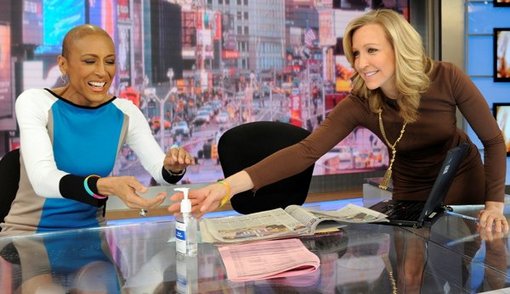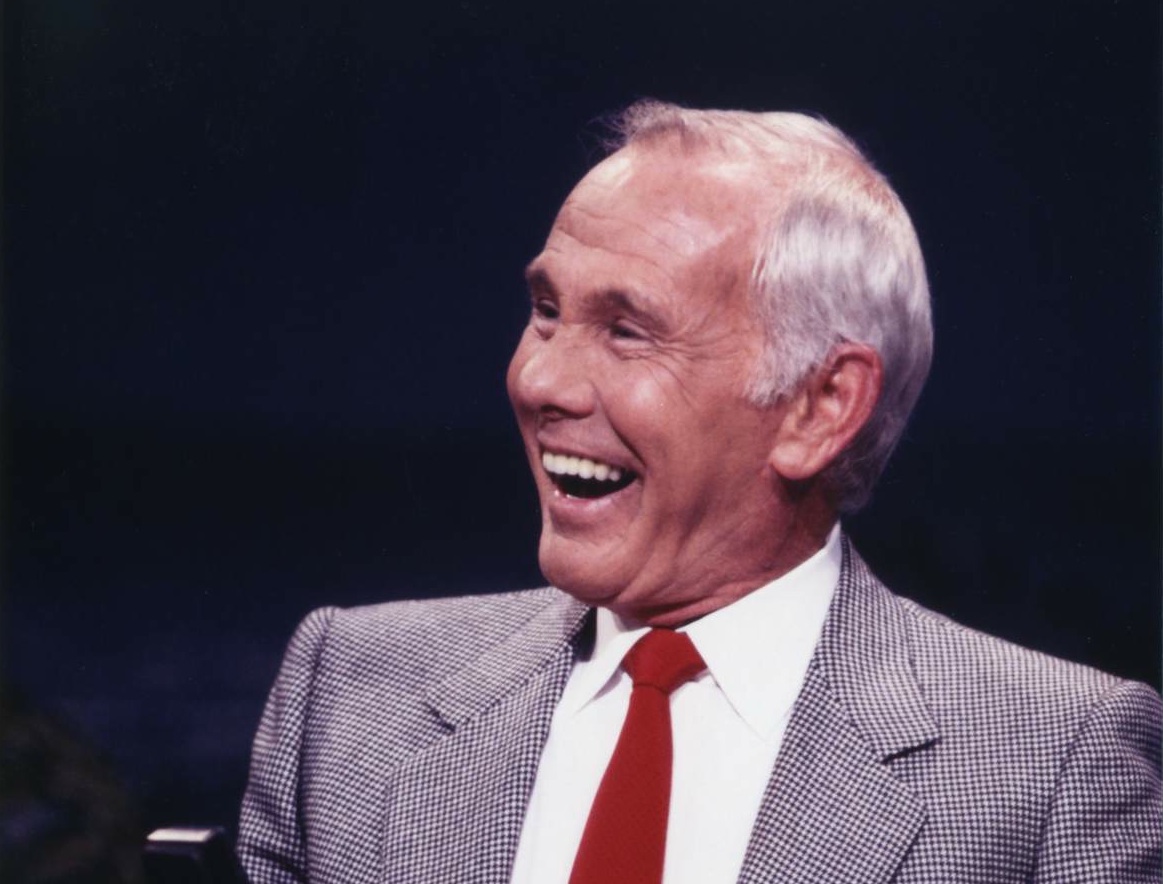(ABC photo)
Roughly five months ago, back in the summer of ’12, the spectacularly popular Robin Roberts, co-anchor of ABC’s “Good Morning, America,” left the show for a sabbatical of indeterminate length. She might be gone for six or eight months, viewers inferred, or for a year. Or, forever.
In the cruel aftermath of treatment for breast cancer five years earlier, Roberts had developed a rare and serious bone disease, and now she would have to undergo extensive and dangerous treatment, including a bone-marrow transplant, for that. Hers had become a more harrowing survival story than most of those she’d dealt with in news reports on the program.
Much less memorably, within the same time frame, yours truly wrote a column critical of ABC for, I thought, too-blatantly exploiting the Roberts story for its ratings potential. After 16 years of getting shellacked in the Nielsens by NBC’s long-dominant “Today” show (sometimes it seemed that the invention of “Today” had miraculously preceded the invention of television, and that TV came along so there’d be some place to put it), “GMA” was now sometimes tying and sometimes beating “Today” in the ratings. It had been a long time coming.
A single ratings point can be worth millions in advertising dollars to a network, and you’d have to be very naïve to imagine that the possibility of taking over the top spot in morning television hadn’t occurred to ABC executives, especially since the entire network TV business has been in a very precarious state since the emergence of the Internet and its evil twin, cable. Owned for decades by electronics giant RCA, NBC found itself part of General Electric, then partnered with Universal Studios and then, in a $30 billion deal, owned by cable colossus Comcast.
To note that these are high stakes is preposterous understatement.
Even so, I was knocked for a loop or two by ABC’s reaction to my column. A testy vice president issued a vituperative denunciation that condemned me BY NAME (unusual even in the nutty network business) for daring to suggest that the Roberts saga was being used to gain a ratings advantage over competitors. This allegation was furiously dismissed and denied, but ABC reacted so hysterically to it that, I thought, they gave it credence — the old “thou doth protest too much” syndrome. It seemed to me — repeat, “seemed” — that in the ensuing days and weeks, ABC treated the story a bit more dispassionately, which ideally is how news should be treated by journalists.
It even occurred to me, though only for a minute, that maybe, just to get the network’s easily gotten goat, I should do a follow-up column taunting ABC for UNDER-covering the story and asking rhetorically if they had “ice-water in their veins,” which is what Lou Grant mockingly accused his disbanding newsroom colleagues of having when they briefly stopped crying on the last episode of “The Mary Tyler Moore Show.”
However, I thought to myself, maybe ABC executives wouldn’t find that very funny and, much more importantly, people in the real world might fail to be amused by it as well. So I didn’t do it.
In no way, not even for a sliver of a particle of a split-second, did I, or would I, make light of Roberts’ plight, and I certainly never accused her of “exploiting” her own illness. NOBODY is that competitive, not even in the network TV business. ABC spokespeople hastened to point out, in their defense, that the promos and special reports and overall coverage were presented to Roberts for her review before air and that she did not object. So be it.
I don’t and didn’t mean to imply, either, that the promotion and publicity people at ABC News, or network executives in other departments, or Roberts’ coworkers on “Good Morning, America,” are all a flock of cynics right out of Paddy Chayefsky’s “Network,” that entertainingly mean-spirited attack on the supposedly soulless TV business released in 1976 — a galaxy far, far away.
When Roberts returned to “GMA” on Wednesday, Feb. 20, the outpouring of emotion and admiration by her fellow staff members was unmistakably sincere, and the tears of joy were certainly not prompted by anything to do with ratings. Looking into one of the cameras that could be said to love her as much as her coworkers do, Roberts told viewers: “I have been waiting 174 days to say this: ‘Good morning, America.'”
Other cameras had captured her, earlier on videotape, as she returned to the network’s Times Square studios engulfed by cheering well-wishers. The scene, in fact, resembled President Barack Obama’s entrance into the House of Representatives earlier in the month for his State of the Union speech, but Roberts received an even more enthusiastic mass greeting. Obama and First Lady Michelle appeared early in the “GMA” telecast to welcome Roberts back to her TV home, an unusual (videotaped) tribute to be sure. (Roberts ALSO interviewed Mrs. Obama, for airing Feb 26.)
Many more celebrities taped brief welcome-back messages — everyone from cast members of the Grand Ole Opry to the one-and-only grand old Oprah. The Muppets were there on tape, and players from the L.A. Lakers (who presented Roberts with a personalized purple-and-gold jersey) and colleagues whom Roberts had known when she worked at ESPN, the all-sports network. Even amidst all the daily, 24/7 ballyhoo of commercial television, the tributes seemed genuine and authentic. Nobody, it appeared, had to fake it.
And Roberts’ natural radiance really did come across as even more radiant, and even more natural, than ever.
Her return did, indeed, have the requisite ingredients for a bona fide inspirational tale, the kind that TV traditionally makes up and peddles as the truth. But this one was for real. “I keep pinching myself, and I realize this is real, this is actually happening,” Roberts said to the coworkers around her on the “GMA” set. Perhaps no word in the TV lexicon is as over-used and abused as “reality,” but every now and then, reality does break through TV’s curtain of artifice and empty ruckus, and this was one of those moments.
It’s hard, generally, not to be skeptical when TV personalities claim to be terribly moved, or hugely sympathetic, or soft-heartedly distressed by this or that item in the news. Really now, don’t you get a lump somewhere other than your throat when a guy like Matt Lauer, the “Today” show host, tells some figure in the news — someone going through a traumatic ordeal — that they’ll be remembered “in our prayers”? Who can honestly imagine Matt kneeling at the side of his bed and asking God to bless and keep Hattie McHattie of Hattiesberg, Ark., whose house floated away in a flood?
Yeah, right — just before, “and bless mommy, and daddy, and Fluffy and Muffy”?
But now, as it must in nearly every story dealing with commercial television, the subject of ratings raises its mighty head. Sure enough, and predictably enough, Robin Roberts’ return to “GMA” gave the show’s already high ratings a substantial boost. An estimated 6.1 million viewers tuned in to welcome her back, as opposed to 4.9 million who watched “Today” on NBC that morning. The namby-pamby New York Times, daring defender of the status quo, was all aglow welcoming Roberts back, noting with an implicit tut-tut that some critics had “grumbled” about the hype and promos five months earlier — a gutless Times writer essentially dismissing them as Blue Meanies.
Roberts clearly loves her work and many of her coworkers. One can hope, though, that she won’t overdo the good-soldier bit now that she is, tentatively, back (she will not appear Monday through Friday on “GMA” at least for a while — doctor’s orders — but will show up as her health allows). As part of Welcome Back Week, Roberts was interviewed by fellow ABC News star Diane Sawyer and was scheduled for a special edition of “20/20” — as well as working the Oscars on ABC in Los Angeles over the weekend and, while out there, making an appearance on the network’s late-night bore, “Jimmy Kimmel Live.”
She’s got that certain “something” that earns a select few personalities special places in the public’s affection and esteem, and even honorary membership in their extended families. If you could bottle that something and sell it, as the old saying goes, you’d make a zillion. And the networks would overdose on it before you could say “Welcome back, Robin” — which every ABC News correspondent did say in every single report that aired on the day she returned.












